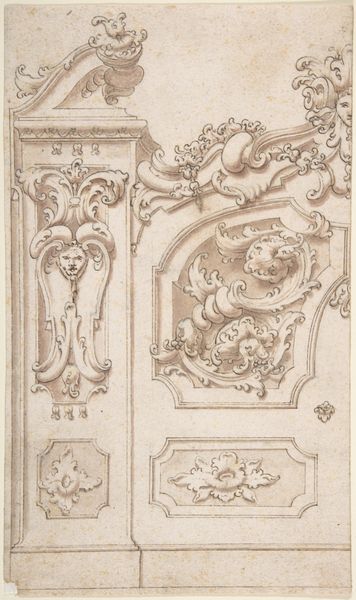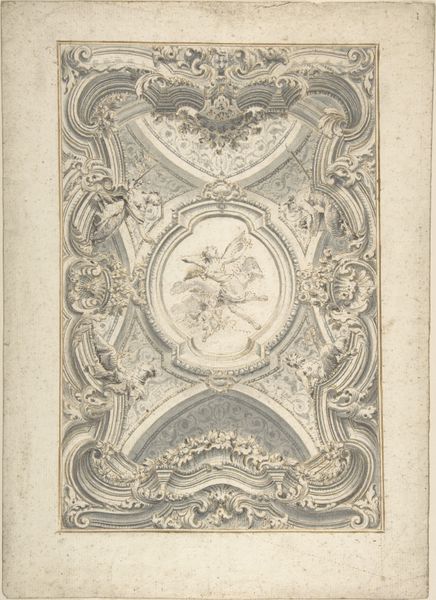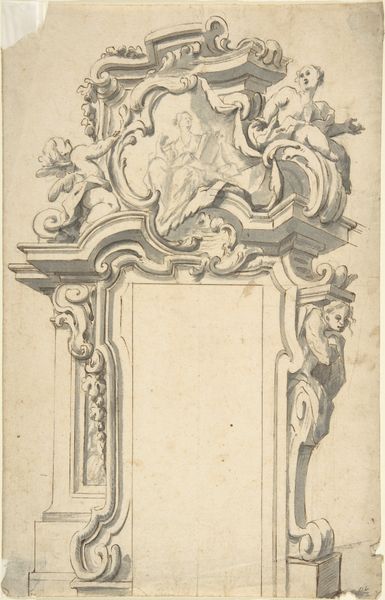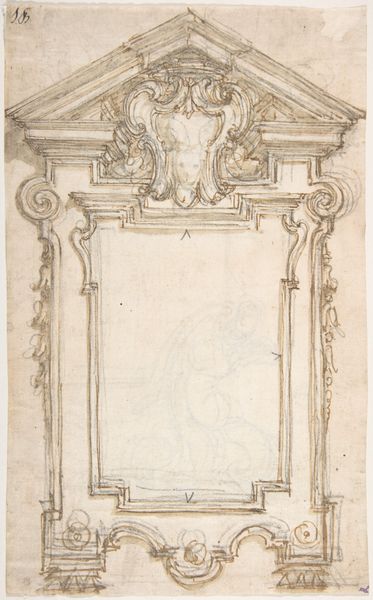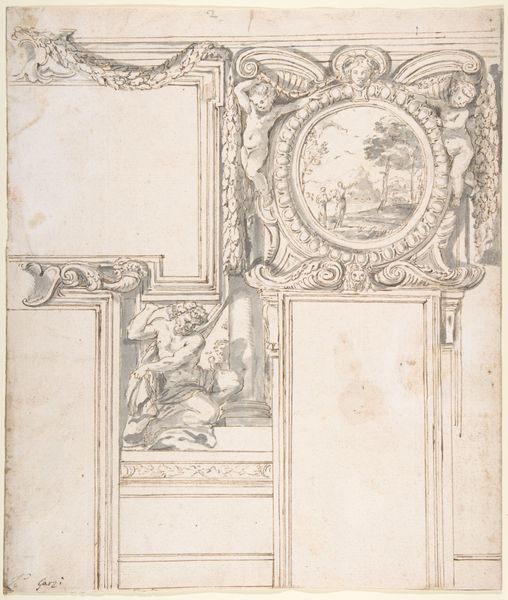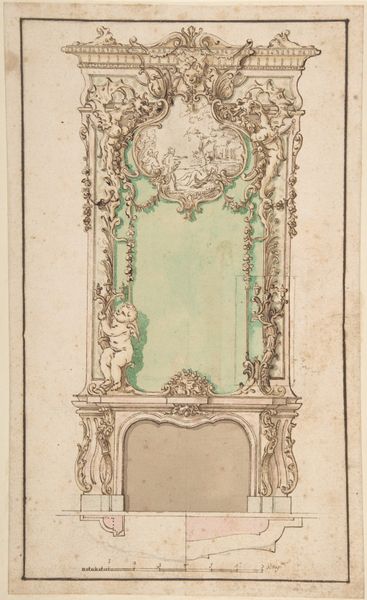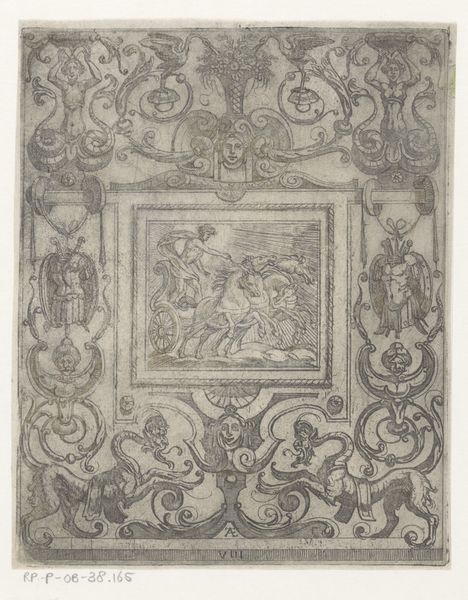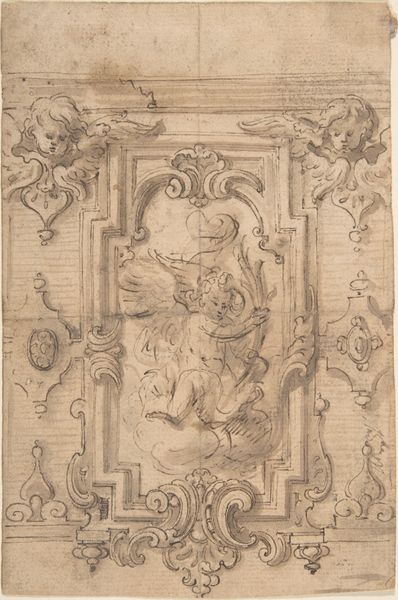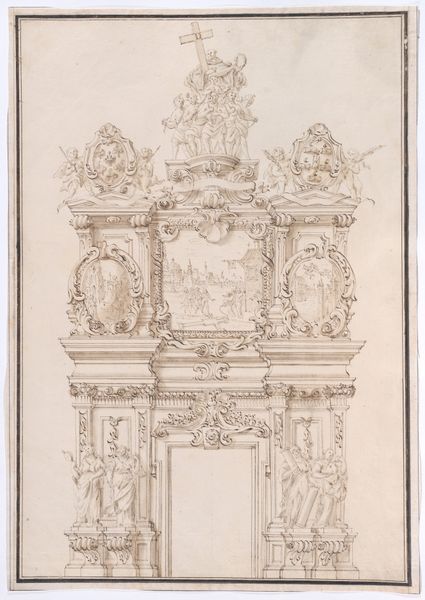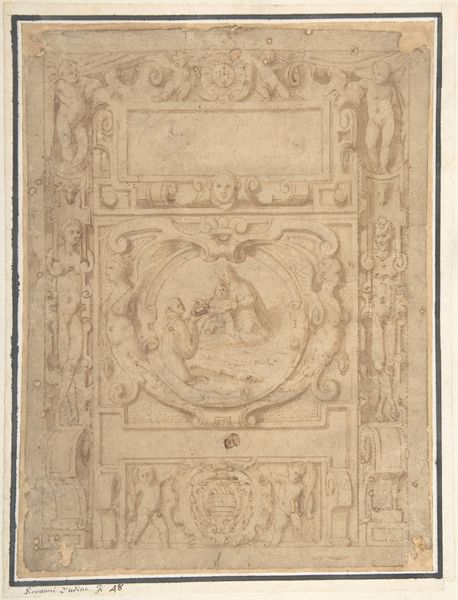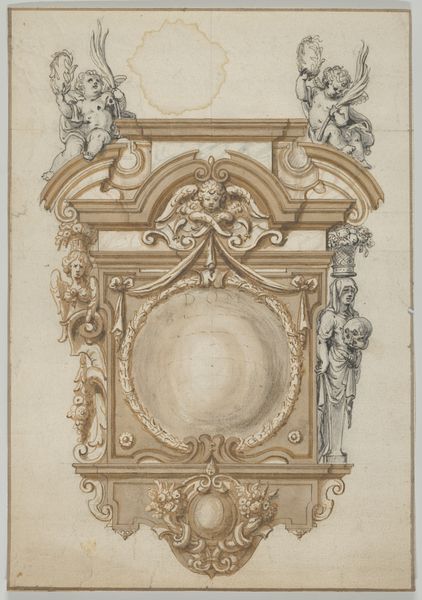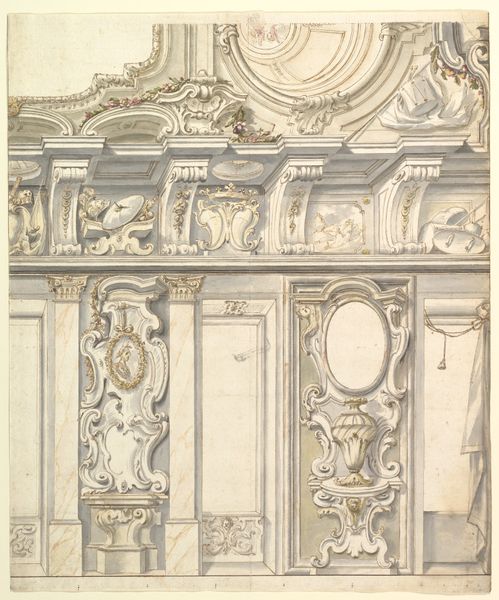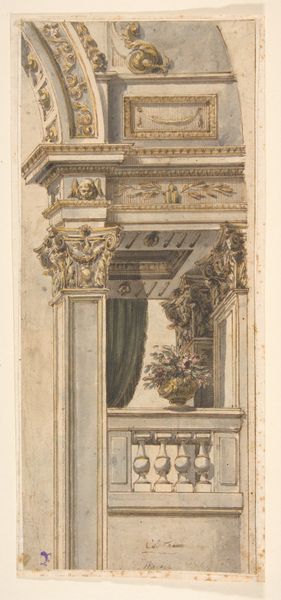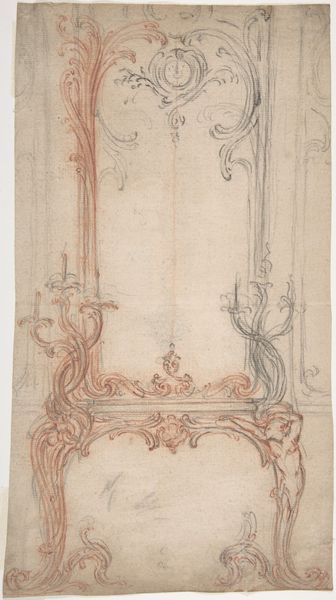
drawing, ornament, print, paper, ink, pen, architecture
#
drawing
#
ornament
#
toned paper
#
allegory
#
baroque
# print
#
landscape
#
classical-realism
#
figuration
#
paper
#
traditional architecture
#
nude colour palette
#
ink
#
men
#
pen
#
history-painting
#
academic-art
#
architecture
Dimensions: 10-1/2 x 7-13/16 in. (26.6 x 19.9 cm)
Copyright: Public Domain
Curator: This drawing, simply titled "Designs for a Niche," dates back to somewhere between 1600 and 1700. The anonymous artist used pen and brown ink with brown wash on toned paper to conjure this vision of architectural adornment. Editor: It feels like peeking into a grand hall that exists only in the artist's imagination. The color palette is restrained, almost sepia-toned, giving the whole composition a dreamlike quality. Curator: It's Baroque ornament at its finest, or rather, a design proposal for it. The Met is filed as print; I wonder if this design ever did make it out into the world? Editor: Oh, absolutely. You can feel that playful, over-the-top Baroque spirit dancing in those curves and flourishes. I am getting figures bearing garlands like they just escaped from some pastoral painting. Look at the very human touches, lending that architectural austerity. The paper adds so much soul too, doesn’t it? Like it has been telling a quiet story of survival of something we may have never witnessed. Curator: Absolutely. Think about the socio-political climate of the time, the rising merchant classes wanting to emulate aristocratic grandeur… Designs like these democratized access to artistic refinement, at least on paper. The circulation of such ornamental designs reflects shifting social dynamics. Editor: But look closer – isn't there a slight tension here? The symmetry feels deliberate but imperfect, almost a playful wink at the rigidity of classicism. Did someone imagine a rebellion of line against form? I love those landscapes in the niche. Curator: It is an imagined rebellion to bring balance and joy together, right? Also look how this "imperfection," introduces this beautiful handmade feel, nodding towards those landscape pieces that humanizes such grandiose elements that nobility likes so much. The "flaw" becomes part of its strength. The circulation of these types of art democratized aesthetics from their elite settings to all sorts of population. Editor: Exactly! And that is part of why I believe even a "simple" sketch like this carries such weight. Well, thinking that all of the political context makes me want to see other types of rebellious artists. Curator: Agreed. Now, it's difficult not to imagine this niche as a quiet space for reflection… perhaps that's exactly what its designer had in mind!
Comments
No comments
Be the first to comment and join the conversation on the ultimate creative platform.
